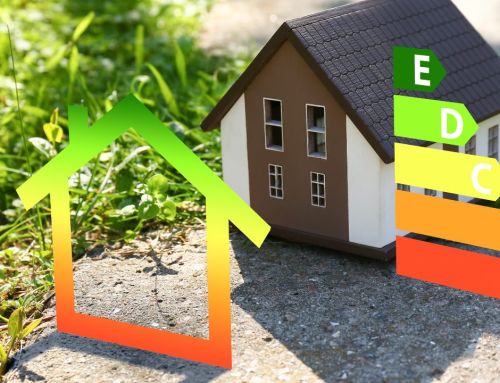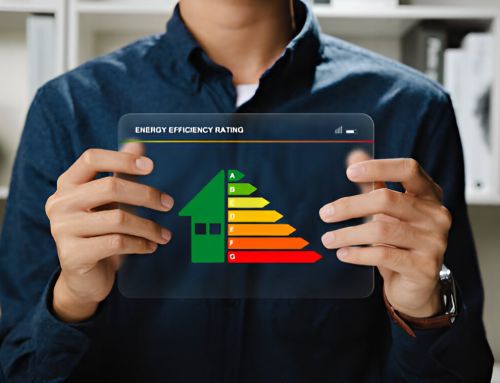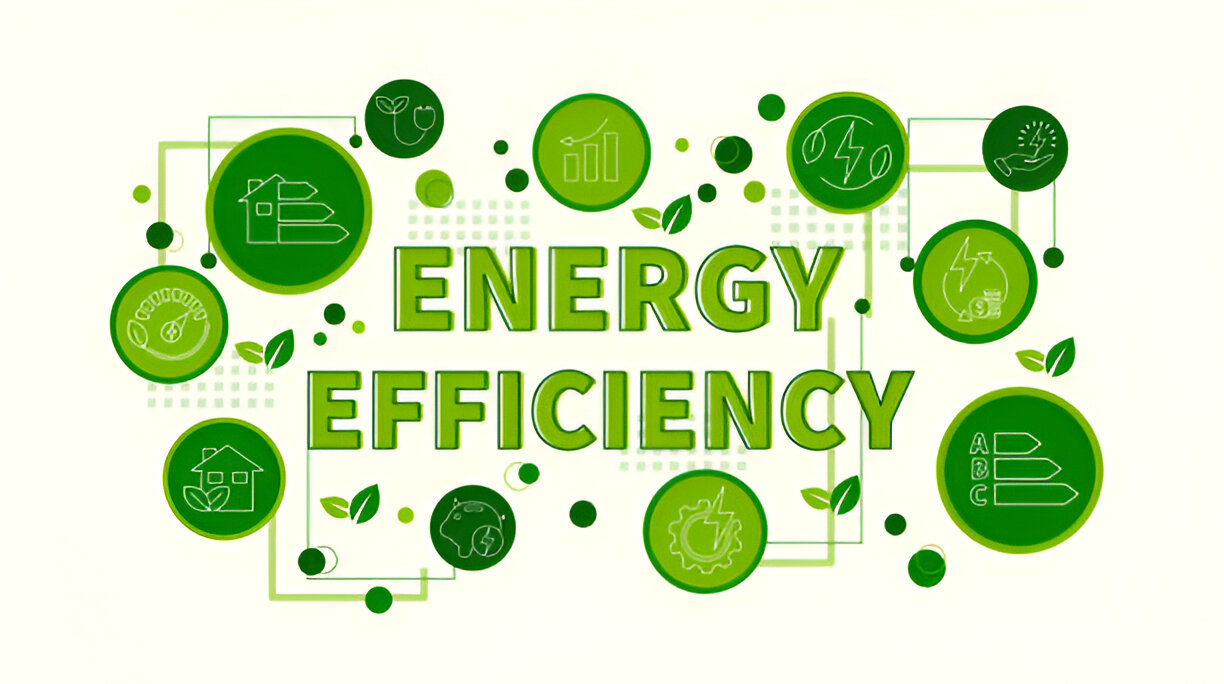
Being a homeowner, I recently discovered the impact of Energy Performance Certificates (EPC) on the energy efficiency of my property. Understanding the intricacies of EPC ratings and their implications can be a game-changer in our quest for sustainability.

From the basics of EPC grades to the practical steps one can take to improve efficiency, the world of EPCs is vast and full of valuable insights. Stay tuned to unravel the secrets behind EPCs and how they can transform your approach to energy consumption and environmental responsibility.
Understanding EPC Ratings
The z (EPC) ratings offer a comprehensive evaluation of a property’s energy efficiency and environmental impact, ranging from A to G. Understanding these ratings is crucial for implementing energy efficiency tips, reducing environmental impact, and reaping sustainability benefits. Higher ratings not only indicate better energy efficiency but also suggest cost-saving strategies. By focusing on improving EPC ratings, homeowners can embrace green living practices and contribute to a more sustainable lifestyle.
Analyzing the EPC grades provides insights into areas that require attention to enhance energy efficiency. Lower ratings in the D/E or F/G categories highlight specific aspects needing improvement. Implementing the suggestions from the EPC assessment can lead to a more sustainable home, potentially resulting in significant cost savings over time. By prioritizing the identified areas for enhancement and following the recommended cost-saving strategies, homeowners can create a more energy-efficient living space while reducing their environmental impact.
Significance of EPC
Highlighting the importance of EPCs lies in their role as essential roadmaps for achieving greener, more energy-efficient homes. EPCs provide valuable insights into a property’s energy efficiency, offering detailed information on potential cost savings, environmental impact, and sustainability benefits.
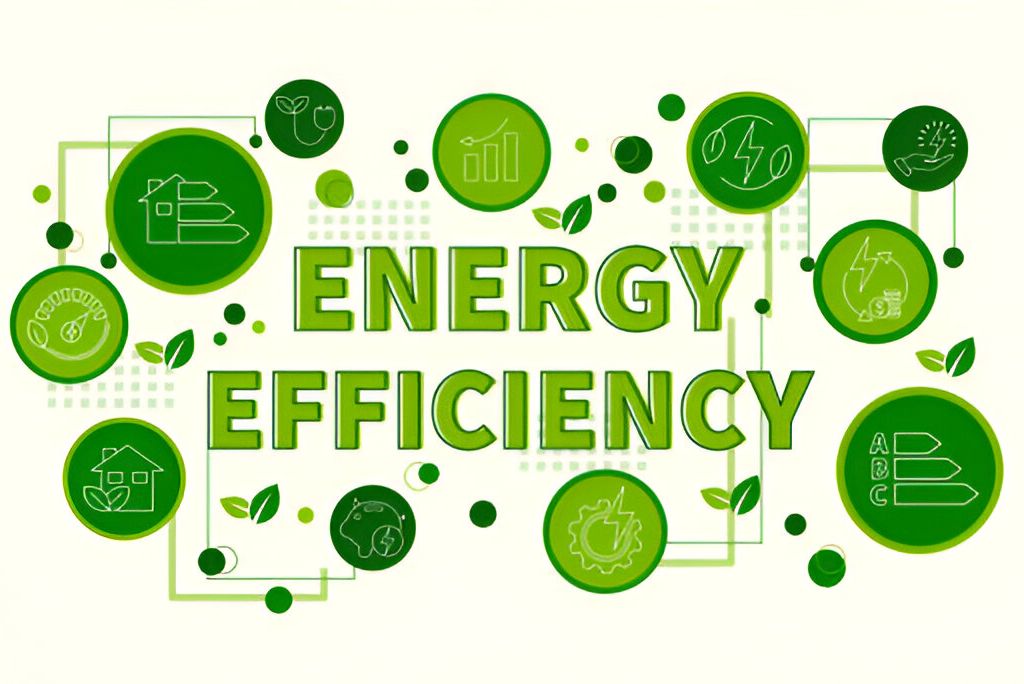
By understanding a property’s EPC rating, homeowners can identify areas for improvement, prioritize energy efficiency enhancements, and make informed decisions to lower energy consumption. These insights not only lead to reduced utility bills but also contribute to a more sustainable lifestyle.
Implementing the suggestions outlined in an EPC assessment can significantly enhance a home’s energy efficiency, such as upgrading to high energy class appliances, using energy-saving lighting, improving insulation, and investing in renewable energy systems. By following these green living tips derived from EPC evaluations, homeowners can create more environmentally friendly living spaces while maximizing cost savings and energy efficiency.
Importance of EPC for Homeowners
Moving from understanding the significance of Energy Performance Certificates (EPCs), homeowners gain crucial insights into their property’s energy efficiency and sustainability through these assessments. EPCs play a vital role in helping homeowners achieve their sustainability goals by providing recommendations for efficiency enhancements and cost-effective upgrades.
By focusing on the suggestions outlined in the EPC, homeowners can prioritize efforts to improve energy efficiency, leading to potential energy savings and a more eco-friendly living environment. Understanding the importance of EPCs is key for homeowners looking to make informed decisions when buying, selling, or upgrading their homes.
These certificates serve as a roadmap for enhancing energy efficiency, guiding homeowners towards a more sustainable lifestyle. By utilizing the information provided in an EPC, homeowners can make informed choices to achieve their energy efficiency and sustainability objectives effectively.
Getting an EPC Certificate
How can one initiate the process of obtaining an Energy Performance Certificate (EPC) for their property efficiently and effectively?
To begin the EPC process, hiring a qualified Domestic Energy Assessor (DEA) is crucial. These assessors thoroughly evaluate insulation, heating systems, and lighting to determine the property’s energy efficiency. Utilizing specialist software, they provide detailed insights into the EPC rating factors, which include the property’s current energy efficiency, potential for improvement, and overall sustainability impact. Understanding the EPC assessment process is essential, as it not only identifies areas for cost savings and energy efficiency enhancements but also guides towards a more sustainable lifestyle.
To ensure a seamless experience, utilizing official channels for obtaining an EPC certificate is recommended. While considering EPC cost considerations, it is essential to note that the benefits of the certificate, such as cost-effective improvement recommendations and potential energy savings, far outweigh the initial investment. Prioritizing the sustainability impact of the EPC by implementing the suggestions from the assessment can lead to a greener, more efficient home.
| EPC Assessment Process | EPC Certificate Benefits | EPC Rating Factors |
|---|---|---|
| Hire a qualified DEA for assessment | Cost-effective improvement recommendations | Current energy efficiency |
| Evaluate insulation, heating systems, and lighting | Potential for energy savings | Areas needing improvement |
| Use specialist software for evaluations | Enhanced property value | Overall sustainability impact |
Practical Steps With EPC Ratings
When assessing a property’s energy efficiency using EPC ratings, it’s imperative to focus on areas highlighted in lower-rated grades for targeted improvements. Energy saving tips play a crucial role in enhancing a home’s energy efficiency.
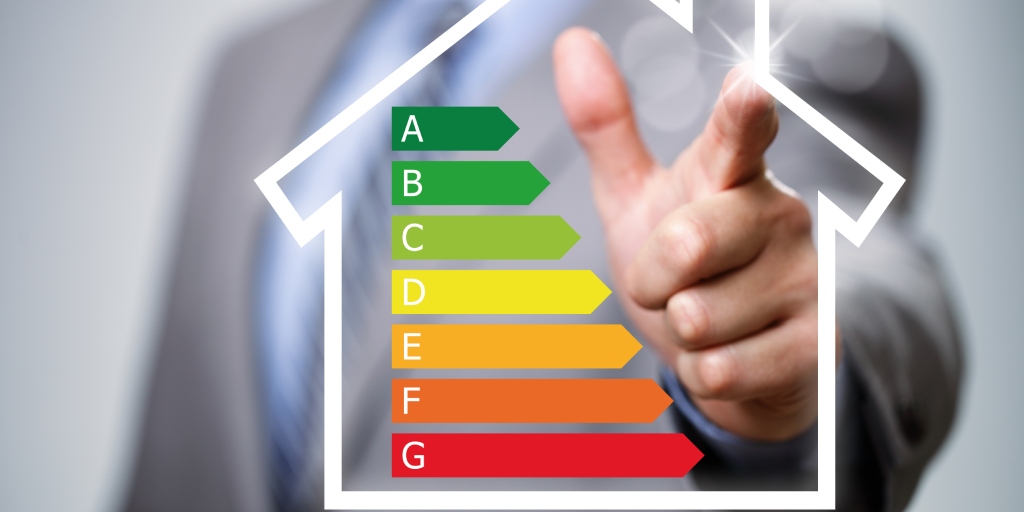
Implementing cost-effective upgrades based on the EPC assessment can significantly improve the property’s sustainability. Home improvements like upgrading to high energy class household appliances, using energy-saving lightbulbs, ensuring proper insulation, and investing in double- or triple-glazed windows contribute to better energy efficiency.
Sustainable living practices can be achieved by following the recommendations provided in the EPC report. By prioritizing energy efficiency enhancements in areas with lower EPC ratings, homeowners can pave the way for a more environmentally friendly lifestyle.
Utilizing the EPC as a tool for planning and executing sustainable living practices ensures that the property operates at its optimal energy efficiency level, leading to long-term cost savings and reduced environmental impact.
Overview of EPCs
EPCs, short for Energy Performance Certificates, evaluate a building’s energy efficiency akin to household appliances. The assessment techniques involve analyzing design, carbon emissions, and interior efficiency. These certificates play a crucial role in determining a property’s value, as they can increase it by showcasing better energy efficiency. Moreover, EPCs promote environmental sustainability by providing cost-effective improvement recommendations that help achieve a higher energy efficiency class and lower electric bills. They remain valid for 10 years, ensuring up-to-date information for property owners. EPC guidelines for renovations guide homeowners on how to enhance their property’s energy performance effectively. Below is a table summarizing the key aspects of Energy Performance Certificates:
| Aspect | Description |
|---|---|
| Assessment Techniques | Analyzing design, carbon emissions, and interior efficiency |
| Impact on Property Value | Can increase property value by showcasing better energy efficiency |
| Environmental Sustainability | Provides recommendations for cost-effective improvements and promotes sustainable living |
| Validity Period | Remains valid for 10 years, ensuring up-to-date information for property owners |
| Guidelines for Renovations | Offers guidance on enhancing property’s energy performance effectively |
Responsibility for EPCs
Moving from the overview of EPCs to the responsibility aspect, the obligation to obtain an Energy Performance Certificate (EPC) is a legal requirement for all buildings in Malta. Landlord obligations include ensuring a valid EPC is in place before listing the property for sale or rent to comply with legal requirements.
The validity period of an EPC in Malta is 10 years, emphasizing the importance of regularly updating and maintaining the certificate. Property improvements suggested in the EPC can range from simple, cost-effective measures like installing energy-efficient lighting to more significant upgrades such as improving insulation or investing in renewable energy systems.
These enhancements not only contribute to legal compliance but also have the potential to increase the property’s value and appeal to environmentally-conscious buyers or tenants. As a landlord, prioritizing legal compliance and energy-efficient property improvements can lead to long-term benefits in terms of sustainability and market competitiveness.
Validity and Importance of EPCs
Ensuring the validity and importance of Energy Performance Certificates (EPCs) remains a critical aspect in property transactions and energy efficiency assessments. EPCs are valid for 10 years and are required for selling or renting out a property, serving as a key tool for staying updated on energy efficiency information. They not only assist in making cost-effective improvements but also ensure legal compliance.
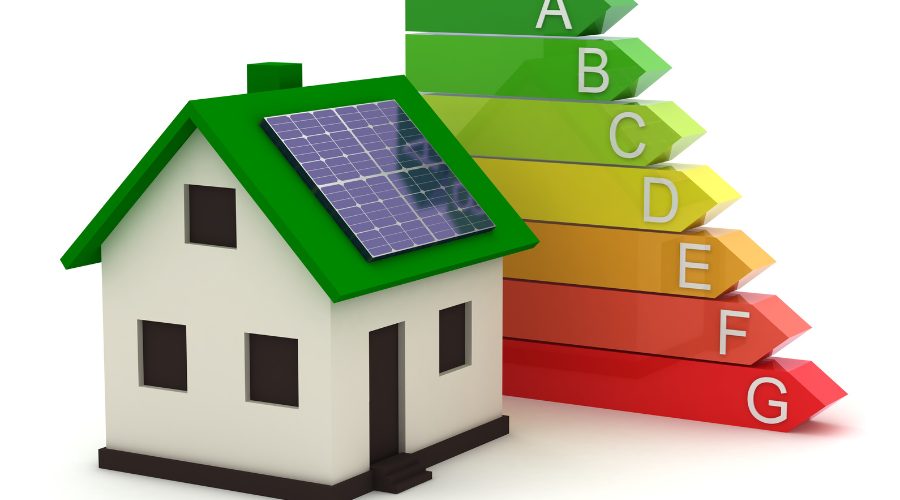
EPCs provide energy efficiency benefits by offering recommendations for enhancing a property’s energy performance, leading to potential cost savings and a more sustainable lifestyle. Moreover, having a valid EPC can impact property value positively. To maximize energy efficiency, consider energy-saving tips like opting for high energy class household appliances, using energy-saving lightbulbs, investing in proper insulation and double- or triple-glazed windows, and considering renewable energy systems.
EPC Requirements for Landlords
The legal obligation for landlords regarding Energy Performance Certificates (EPCs) encompasses obtaining the certificate before renting out a property. As a landlord, rental compliance and meeting legal requirements are paramount. Property assessments for EPCs focus on evaluating energy efficiency levels within the rental property. Ensuring energy efficiency is not only a legal requirement but also a step towards sustainable living practices.
| Landlord Obligations | Rental Compliance | Legal Requirements |
|---|---|---|
| Obtain valid EPC before renting out | Ensure property meets energy efficiency standards | Compliance with legislation and regulations |
| Include EPC information in property listings | Adhere to EPC recommendations for improvements | Legal obligation for property transactions |
| Renew EPC if expired during the rental period | Display EPC rating to potential tenants | Ensure EPC validity throughout the tenancy period |
Exemptions From EPC Requirements
Upon assessing energy performance requirements for landlords, exemptions from EPC mandates exist under specific circumstances. Exemptions clarification is crucial for understanding when a property may be exempt from obtaining an EPC.
Regulatory exceptions may apply in cases where the property is already rented out or when moving into a previously rented property. Exemption criteria often include owner-occupied properties and certain building types that meet specific requirements.
Different exemption scenarios may arise, necessitating a clear understanding of the criteria to determine if a property qualifies for exemption. Exempted properties must meet the outlined conditions to be legally exempt from obtaining an EPC.
It’s essential for landlords and property owners to familiarize themselves with these exemptions to ensure compliance with regulations and avoid unnecessary obligations. Understanding the nuances of exemption scenarios can help streamline processes and prevent confusion regarding EPC requirements.
Frequently Asked Questions
Can You Obtain an EPC for a Property That Is Not Currently on the Market for Sale or Rent?
Yes, you can obtain an EPC for a property not on the market for sale or rent. The EPC validity is 10 years, so it’s beneficial for understanding and improving energy efficiency. Certain exemptions apply based on circumstances.
Are There Any Financial Incentives Available for Homeowners Who Improve Their Property’s Energy Efficiency Based on EPC Recommendations?
Financial incentives, like Government schemes, reward homeowners for green upgrades based on EPC recommendations. These incentives promote energy savings through home improvements, encouraging eco-friendly practices and cost-effective upgrades that enhance energy efficiency.
How Often Should Homeowners Consider Getting a New EPC Assessment Done for Their Property?
For EPC renewal frequency, homeowners should consider reassessment every 10 years to monitor energy efficiency. Updating property assessments ensures sustainability measures align with current standards. Regular checks aid in improving energy efficiency.
Can EPC Ratings Impact Property Insurance Premiums or Mortgage Rates?
EPC ratings can impact property insurance premiums and mortgage rates by influencing energy savings, property value, and potential for home improvements. Understanding and improving EPC ratings can lead to financial benefits and increased sustainability.
Are There Any Specific Regulations Regarding Displaying EPC Ratings in Property Listings or Advertisements?
When it comes to displaying EPC ratings in property listings or advertisements, understanding advertising requirements, legal implications, and consumer awareness is crucial. Utilizing online listings effectively and incorporating EPC ratings strategically can enhance marketing strategies.
Conclusion
In conclusion, Energy Performance Certificates (EPCs) are a vital tool in promoting energy efficiency and sustainability in our homes. By understanding and utilizing EPC ratings, homeowners can make informed decisions to reduce energy consumption, save costs, and contribute to a greener future.
Obtaining an EPC certificate and implementing its recommendations are practical steps towards a more environmentally friendly lifestyle. With a focus on accountability and efficiency, EPCs play a crucial role in shaping a more sustainable world for generations to come.
About the Author: LandlordCertificate
Related Posts
Get Social
Recent Posts
- Choosing the Right Consumer Unit for Fuse Box Installation London in Properties
- Electrical Diagnostic London: How Professional Testing Keeps Your Property Safe and Compliant
- Asbestos Management Survey London: Update Your Property Records
- Gas Safety Certificate London: Why Regular Checks Save Money Long-Term
- FRA London Explained: How a Professional Fire Risk Assessment Keeps You Compliant and Safe



